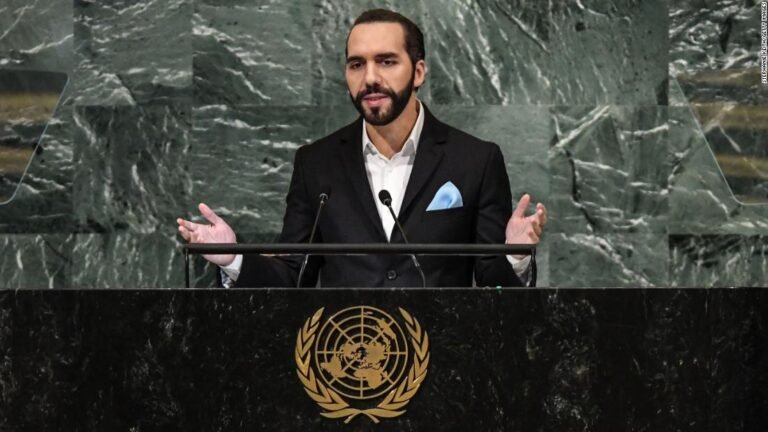
[ad_1]
Last year, after an infamous weekend of killings, Bukele declared a state of emergency with the support of his country’s Legislative Assembly, controlled by his “New Ideas” party. The state of emergency has allowed the government to temporarily suspend constitutional rights, including freedom of assembly and the right to legal defense.
Under the state of emergency, which has been extended 11 times, suspects can be detained for up to 15 days without being charged, instead of the constitutionally mandated 72 hours. Once charged, a suspect can spend months in detention before facing trial.
Many of the people arrested under the state of emergency have been charged but not convicted, and receive little opportunity to argue their innocence in El Salvador’s group hearings. At the beginning of January, just over 3,000 detainees had been freed due to lack of evidence — of the over 64,000 people arrested since the state of emergency began.
The issue now is not the validity of the crackdown or the decision to free Salvadorans from the scourge of the criminal gangs. For observers, analysts and human rights groups, the question is at what cost? How long will Salvadorans allow the suspension of their basic constitutional rights in the name of security? Are they willing to live under a state of emergency indefinitely?
For decades, Salvadorans endured criminal gangs that robbed, extorted, killed, raped, and terrorized the population. Now, the vast majority of Salvadorans (and some in Latin American) support their president as the first leader to take the problem seriously.
In El Salvador, there is little room for criticism or dissent about the state of emergency. In the country of more than six million, you’re either with the president or against him; those who question Bukele’s heavy-handed policy get sternly rebuked by the president’s supporters and the Central American version of cancel culture (in the best of cases). For legislators, questioning his policies would be political suicide; as of November last year, according to a poll by Salvadoran newspaper La Prensa Gráfica, 89% of Salvadoreans approved of their president.
In June of last year, Amnesty International published a report that titled “El Salvador: President Bukele submerges his country in a human rights crisis after three years in government.” One section alleges government retaliation against five journalists, including three who “had to moved or leave the country because of government harassment.”
Claims of innocence
Juan Pappier, Human Rights Watch’s Americas acting deputy director, recently told me that his organization has witnessed some of the abuses committed under Bukele’s policy, including detentions of innocent people.
“We have documented on the ground that some of these people [the detained] have nothing to do with gangs, are innocent Salvadorians, working people, children who have been arrested and now face Kafkian legal proceedings to prove they have nothing to do with these criminal organizations,” Pappier said.
Bukele’s office did not respond to multiple requests for comment on this topic. As a matter of policy, the Salvadoran president does not speak to the media, choosing instead to speak out on Twitter, where he often argues that human rights groups are more interested in defending the rights of criminals than law-abiding citizens.
In a tweet last April, Bukele acknowledged that mistakes had been committed in one case, saying, “There will always be a 1% error that a fair system must correct.”
But families of many of the detained have been protesting for months, claiming their loved ones were arrested and accused of being gang members simply for being in the wrong place at the wrong time.
Maribel Flores, the mother of a detained woman, recently joined a group protesting Bukele’s policies at the headquarters of El Salvador’s Office for Human Rights in San Salvador, the capital, demanding an end to what they call “arbitrary detentions.”
Among those who believe Bukele’s policies are doing more harm than good are Rafael Ruiz and Norma Díaz. They are the parents of five children who live near San Salvador, the capital. They told CNN one of their sons was detained last April and a second one in December. They are now both accused of gang crimes, though their parents insist that they are innocent.
“They’re practically taking my life,” Díaz told CNN choking up. “My children are not criminals. They’re hard-working, good people.”
“Little by little, one is consumed by the sadness of trying to find out why their children are in that place [jail]. Maybe they don’t give them medicine, or food, or anything,” Ruiz said.
[ad_2]
Source link